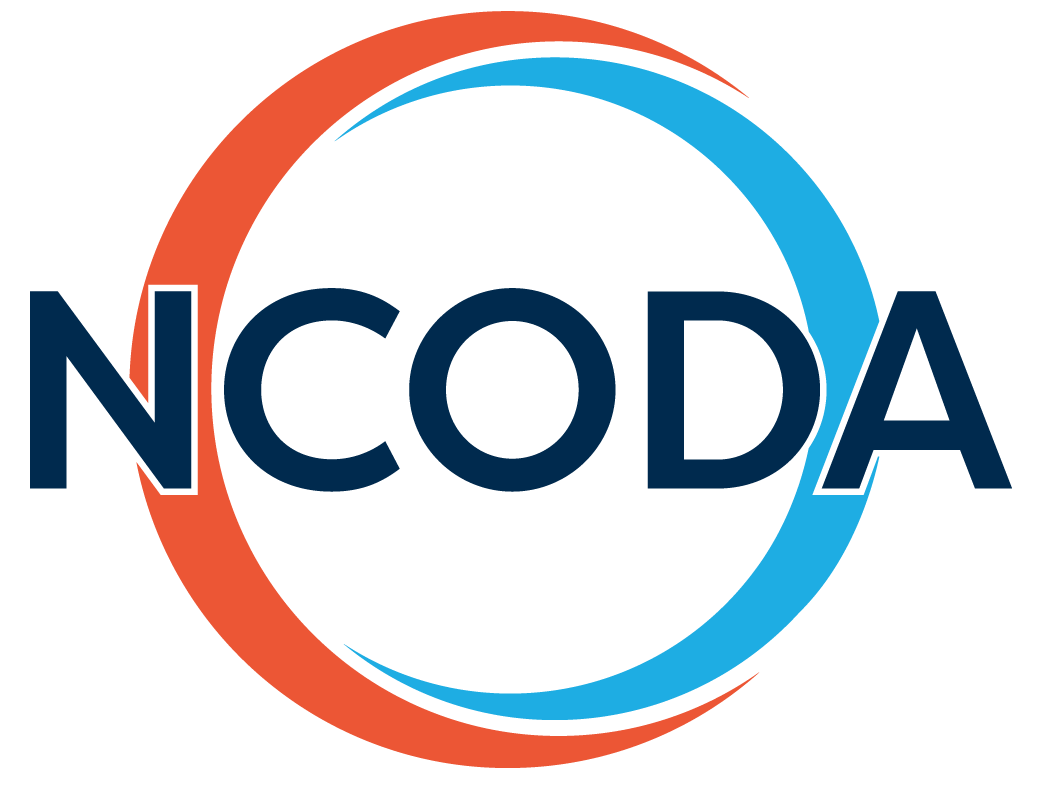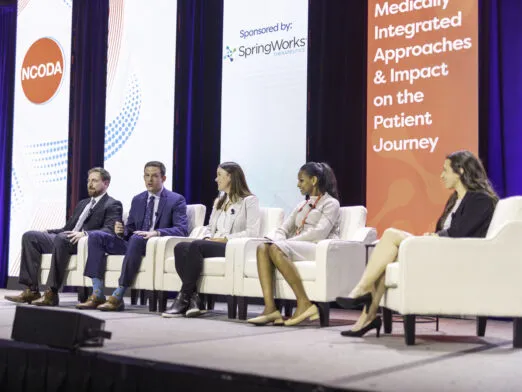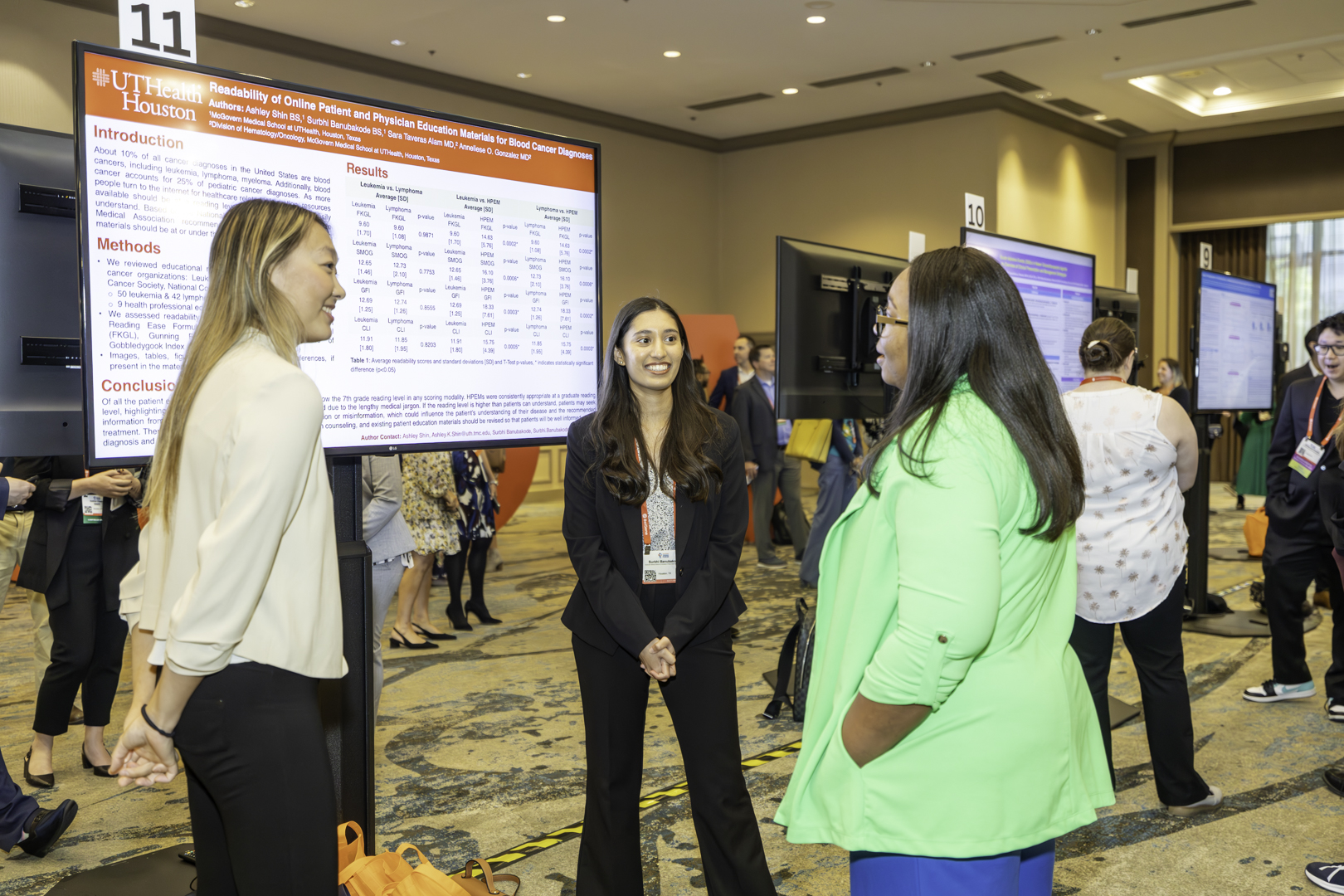OncolyticsToday: The Need for Clinical Trial Equity
Published Date: October 1, 2024

WE MUST DO MORE TO EXPAND CANCER CLINICAL TRIALS AND IMPROVE EQUITY
By Suzanne M. Miller, PhD
In the world of oncology, clinical trials are essential to advancing medical knowledge and improving patient care. Clinical trials help move oncology discoveries from concept into life-changing cancer treatments. In addition to advancing science, they often give patients access to promising new treatment approaches.
Yet only about 5% of patients with cancer participate in clinical trials and even fewer are from minority communities.1 This has implications for the speed we can test new treatments; for equitable access to novel therapies and for understanding how well drugs work in diverse patient populations. We need to expand participation in clinical trials to offer better options for current patients and to improve outcomes and reduce side effects for patients in the future.
I’ve devoted my career to understanding decision- making among cancer patients, including research into barriers to cancer clinical trials. I see how clinical trials too often are disconnected from the system that provides cancer treatment. Widespread misconceptions about clinical trials needlessly frighten patients. And, yes, there are real-world barriers such as time, travel and cost.
My research found patients worry about the costs of clinical trials. Most clinical trials compensate patients, but we need to do more.2 In addition to my role as a professor and researcher, I sit on the board of the HealthWell Foundation, an independent, nonprofit organization that assists patients with copayments, premiums, deductibles and out-of-pocket expenses. I worked with the HealthWell Foundation as the organization recently announced its sponsorship of the Family Reach’s Clinical Trial Access Fund, which provides financial support to oncology patients enrolled in an oncology clinical trial. The fund provides financial assistance for food, transportation, housing and utilities for patients — and is part of the HealthWell Foundation’s participation in the Cancer Moonshot Initiative, coordinated by the White House.
The HealthWell Foundation’s efforts are a small step forward. I believe everyone who works with cancer patients — in hospitals, pharmaceutical companies, patient advocacy groups and charitable programs — must do more to increase participation in clinical trials and potentially lifesaving cancer treatments.
Clinical trial participants should reflect the people most likely to need the treatments being tested. Equity creates more reliable research. We need to counter profoundly low representation of minority patients. More than 13% of patients with cancer are Black, but participation among Black patients in clinical trials is only about 4% to 6%.3
Another current deficiency surrounding access to clinical trial participation is the lack of data on Hispanic and Asian populations. An essential component of improving how we convey information about clinical trials is to collect data that includes beliefs and barriers of these populations. Our research found higher rates of medical mistrust among Black patients and less knowledge about clinical trials compared to White patients. Yet we also found that when clinical trials were offered and targeted education was provided, willingness to participate in clinical trials did not vary by race.4
Education and willingness to engage patients from different backgrounds is key to addressing health disparities and improving equity. What do we need to do? We cannot just hand cancer patients a piece of paper where they can check “Yes” or “No” to the possibility of a clinical trial and end the conversation right there. We need to listen and address patient concerns A clear and accurate response that addressing language barriers when present can increase participation.
If we want better cancer treatments for tomorrow, we must help patients understand the value of clinical trials, not just for scientific advances, but also for their own health. We must rethink how we talk to patients about clinical trials — as well as provide practical solutions that recognize the real-world challenges they face.
Patients too often think that if they join a clinical trial, they may not get treated at all. Patients should understand that every patient in a clinical trial gets at least the best current standard treatment and will be randomly assigned to an additional or alternative experimental treatment.5
All trials are carefully evaluated by independent committees to be sure that the best possible care is provided to all participants. All trials involve detailed attention to patients’ symptoms and the status of their cancer. In a clinical trial, there will be physicians and nurses monitoring you carefully and regularly. I believe that clinical trials offer the best possible care — regardless of whether a patient is in the control group and receives the standard of care or experimental therapy.
If we want better cancer treatments for tomorrow, we must help patients understand the value of clinical trials, not just for scientific advances, but also for their own health. We must rethink how we talk to patients about clinical trials — as well as provide practical solutions that recognize the real-world challenges they face.
Additional Information
1. Meyer S, Woldu HG, Sheets LR. Sociodemographic diversity in cancer clinical trials: New findings on the effect of race and ethnicity. Contemp Clin Trials Commun. 2021 Jan 20;21:100718. doi: 10.1016/j.conctc.2021.100718. PMID: 33604484; PMCID:PMC7872971.
2. Wong, Y-N., Schluchter, M., Albrecht, T., Bowen Benson III, A., Buzaglo, J., Collins, M., Flamm, A., Fleisher, L. Katz, M., Kinzy, T., Liu, T.M., Manne, S., Margevicius, S., Miller, D.M., Miller, S.M., Poole, D., Raivitch, S., Roach, N., Ross, E., Meropol, N.J. (2016). Financial concerns among cancer patients about participation in clinical trials. Journal of Clinical Oncology, 34(5) 479-87.PMCID: PMC4872013.
3. Guerra CE, Viswanath C. Advancing Equity in Cancer Clinical Trials: Lessons From the Evidence. JCO Oncol Pract. 2022 Sep;18(9):633- 634. doi: 10.1200/OP.22.00390. Epub 2022 Aug 8. PMID: 35939777.
4. Igwe, E., Woodburn, J., Davolos, J., Shollenberger, C., Miller, S.M., Hernandez, E., Ferris, S. (2016). Patient perceptions and willingness to participate in clinical trials. Gynecological Oncology, 142(3):520-4. PMID: 27372403.
5. Manne, S., Kashy, D., Albrecht T., Wong Y.N., Lederman Flamm A. Benson, AB 3rd., Miller, S.M., Fleisher, L., Buzaglo, J., Roach, N., Katz, M., Ross, E., Collins M., Poole, D., Raivitch, S., Miller, D.M., Kinzy, T.G., Liu, T., & Meropol, N. (2014). Attitudinal barriers to participation in oncology clinical trials: factor analysis and correlates of barriers. European Journal of Cancer, 24: 28-38. PMCID: PMC4417937.
Suzanne M. Miller, PhD, is a member of the HealthWell Foundation Board of Directors. She also is a is a professor in the Cancer Prevention and Control Program at Fox Chase Cancer Center/Temple University Health System in Philadelphia.






